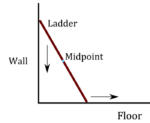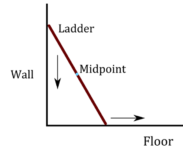
Oxford 2018 interview questions
These sample interview questions come direct from the tutors who conduct the interviews. We hope they’ll make you think, and help you understand why we ask the questions that we do.
-
Biochemistry
- Here is a list of three compounds, A, B and C. Which one is most soluble?
(A, B and C will be specific simple compounds which the candidates should recognise.)
- Here is a list of three compounds, A, B and C. Which one is most soluble?
-
Biological Sciences
- Why do some habitats support higher biodiversity than others?
- Why do lions have manes?
- Ladybirds are red. So are strawberries. Why?
- Would it matter if tigers became extinct?
- Why do many animals have stripes?
- Here’s a cactus. Tell me about it.
- If you could save either the rainforests or the coral reefs, which would you choose?
- Is it easier for organisms to live in the sea or on land?
-
Biomedical Sciences
- Why is sugar in your urine a good indicator that you might have diabetes?
- Why do a cat’s eyes appear to ‘glow’ in the dark?
-
Classics
- Why do you think Dido kills herself in Aeneid 4? Couldn’t she just have gone back to her old life?
-
Computer Science
- How do pirates divide their treasure?
-
Economics
- The Holiday Puzzle:
-
Economics and Management
- Do bankers deserve the pay they receive? And should government do something to limit how much they get?
-
Engineering
- Place a 30cm ruler on top of one finger from each hand so that you have one finger at each end of the ruler, and the ruler is resting on your fingertips. What happens when you bring your fingers together?
- How would you design a gravity dam for holding back water?
-
English Literature
- JK Rowling has just published a book for adults after the hugely successful Harry Potter series. In what ways do you think that writing for children is different to writing for adults?
- Tell me about [this literary work you have mentioned in your UCAS personal statement]
- Why do you think an English student might be interested in the fact that Coronation Street has been running for 50 years?
-
Geography
- If I were to visit the area where you live, what would I be interested in?
-
History
- What would a historian find interesting about the place where you live?
- Is violence always political? Does ‘political’ mean something different in different contexts?
- Imagine we had no records about the past at all, except everything to do with sport – how much of the past could we find out about?
- Which person (or sort of person) in the past would you most like to interview, and why?
-
History of Art
- Do you recognise this image?

-
Law
- What does it mean for someone to ‘take’ another’s car?
- If the punishment for parking on double yellow lines were death, and therefore nobody did it, would that be a just and effective law?
-
Materials Science
- How hot does the air have to be in a hot air balloon if I wanted to use it to lift an elephant?
-
Mathematics
- Imagine a ladder leaning against a vertical wall with its feet on the ground. The middle rung of the ladder has been painted a different colour on the side, so that we can see it when we look at the ladder from the side on. What shape does that middle rung trace out as the ladder falls to the floor?

- How many ways are there to cover a 2 x n rectangular grid with 2 x 1 tiles?
-
Medicine
- I see from your personal statement that you have done (voluntary work / shadowing / some other first-hand experience of interacting with patients or vulnerable individuals). What did you find most surprising about that experience? Is it possible to quantify any benefit you brought to the people you met? How did they feel?
- Why does your heart rate increase when you exercise?
- Why do we have red blood cells?
-
Modern Languages
- What makes a novel or play ‘political’?
- Should poetry be difficult to understand?
- What is language?
- What makes a short story different from a novel?
- In a world where English is a global language, why learn French?
-
Music
- If you could invent a new musical instrument, what kind of sound would it make?
-
Oriental Studies
- Can archaeology ‘prove’ or ‘disprove’ the Bible?
-
Philosophy, Politics and Economics
- Why is income per head between 50 and 100 times larger in the United States than in countries such as Burundi and Malawi?
- When I was at school in the 1970s, there was talk of a pensions crisis that would one day hit. The talk persisted in the 1980s, and the 1990s – and then there was a pensions crisis, and little had been done politically to prepare us for it. Is there a fault with the British political system that means we can’t sensibly address serious medium and long-term problems when they are identified?
- I’m having trouble with the meaning of three words: Lie, Deceive, Mislead. They seem to mean something a bit similar, but not exactly the same. Help me to sort them out from each other.
-
Philosophy
- What exactly do you think is involved in blaming someone?
-
Physics
- A ball, initially at rest, is pushed upwards by a constant force for a certain amount of time. Sketch the velocity of the ball as a function of time, from start to when it hits the ground.
-
Psychology
- A large study appears to show that older siblings consistently score higher than younger siblings on IQ tests. Why would this be?
- Imagine that 100 people each put £1 into a pot for a prize that will go to the winner of a simple game. Each person has to choose a number between 0 and 100. The prize goes to the person whose number is closest to 2/3 of the average of all of the numbers chosen. What number will you choose, and why?
- An experiment appears to suggest Welsh speakers are worse at remembering phone numbers than English speakers. Why?
- What is ‘normal’ for humans?
- Why do human beings have two eyes?
- Should interviews be used for selection?
-
Theology and Religion
- Is someone who risks their own life (and those of others) in extreme sports or endurance activities a hero or a fool?
-
Other subjects
-
Solution to the ‘pirate problem’











